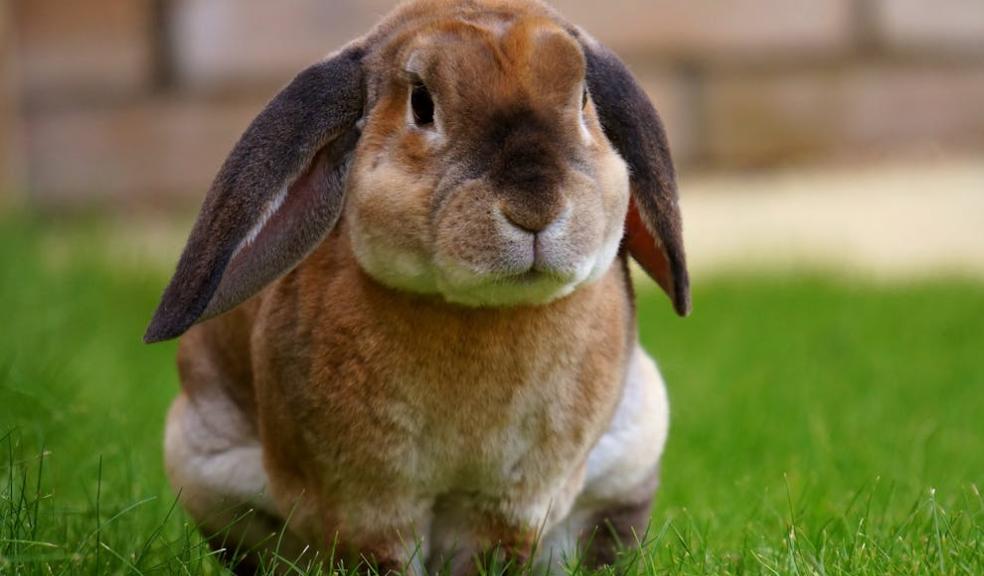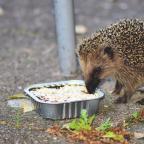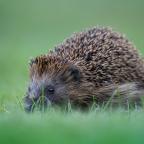
Britain's most neglected pet? Vet charity warns against this “easy” pet due to welfare concerns
Many people consider rabbits to be an easy, starter pet, thinking they are great for new owners or for children who want to take care of something, but vet charity, PDSA are warning people to avoid taking on rabbits if they are looking for a ‘low maintenance’ companion.
PDSA Vet Nurse Shauna Walsh says: “There’s no denying how adorable rabbits are, and whilst they may appear to be easy to care for, they are actually high-maintenance, long-term commitments. Essential rabbit needs are often overlooked including keeping them in pairs or groups and ensuring they get the proper diet needed to live long, happy lives.
“It might be surprising, but pet rabbits can typically live between eight to 12 years, although some can reach 14 years or more with proper care. Which means you’re looking at the same lifespan of a pet dog or cat.”
Rabbits thrive from the company of fellow rabbits, despite this, according to the new PDSA Animal Wellbeing (PAW) Report, nearly half of the population (46%) of rabbits live alone, which is over 320,000 rabbits. This means many are still not having their companionship needs met, which can lead to health and behavioural concerns.
Shauna added: “If rabbits live alone, they can feel socially isolated and become bored, frustrated, anxious, and destructive. They need fellow bunny companionship, as it offers them warmth, comfort and company. This minimises boredom and reduces their anxiety and stress.”
Although rabbits need company, it remains a misconception that they can be housed with other animals, such as guinea pigs.
Rabbits have very different needs to other animals, and they can’t communicate with others the same way rabbits can ‘speak’ with other rabbits, or provide the social support that they need to stay healthy and happy. Because rabbits are prey animals, they tend to hide their feelings, which means it can be harder to spot negative feelings like loneliness in their behaviour, unlike the easy to tell signs shown by other pets.
Companionship is just one of a rabbits 5 Welfare Needs, and unfortunately not the only one that is neglected.
The PAW Report also found just 79% of rabbits are registered with a vet, as well as the fact that rabbits (76%) are significantly less likely to receive preventive healthcare compared to dogs (94%) and cats (87%). This could be a reflection of cost concerns, as the cost of living continues to be a worry for pet owners, which is something that PDSA are highlighting in the rest of the PAW Report.
Shauna continued: “Rabbits also need a good diet to keep their teeth and guts healthy. Rabbit's teeth grow continuously and feeding them the right food will help to wear them down and keep them the right size and shape. Without this, the wrong diet can cause serious dental disease, as well as other health concerns such as obesity.
“Unfortunately, our new PAW Report reveals almost one in five rabbits are fed a muesli mix as a main type of food, and of these 42% are fed three or more tablespoons per day or have unlimited access, which is more than they should be getting.
“We don't recommend muesli-style mixes for your rabbits. They might look more ‘fun’ because they’re brightly coloured and contain a mixture of shapes, but rabbits tend to pick out the less healthy, sugary bits, which often leads to health problems such as obesity, overgrown teeth and gut problems.”
To keep rabbits happy and healthy, the best diet is one that’s as close to a wild rabbit’s diet as possible. Ideally an unlimited amount of hay and grass, but at least a bundle that’s as big as them each day, with fresh food – an adult-sized handful of leafy greens, vegetables and herbs twice daily, and then some nuggets, just one tablespoon of rabbit nuggets once daily (or twice daily if your rabbits weigh over 3.5kg).
Safe vegetables include bell peppers, carrot tops, cauliflower including the leaves and stalks, celery including the leaves, chicory, courgette (and the flowers but not the leaves), fennel, Jerusalem artichoke and leaves, kale, mange tout, rocket, spring greens, watercress. Safe herbs include basil, coriander, dill, mint, parsley, and thyme.
Find out more about rabbit, cat and dog welfare, and more in the latest PDSA Animal Wellbeing Report: www.pdsa.org.uk/pawreport







